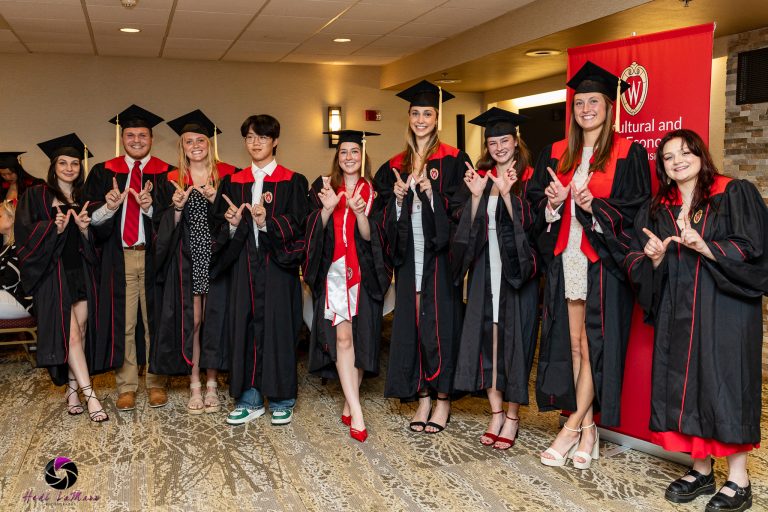
Navigate to sections on this page:
AAE Student Voices
In Agricultural & Applied Economics (AAE), students learn how to use economic principles to assess real-world challenges related to environmental sustainability, energy, trade, poverty, economic development, food systems and biotechnology. This degree is a perfect complimentary to support higher education in globalized thinking and problem solving.
Experiential Education
“I had the incredible opportunity to take part in another CALS case study competition! These events are an amazing way to apply classroom knowledge to real-world challenges, gaining hands-on experience in problem-solving and strategic thinking.”
Morgan Knilans
Agricultural & Applied Economics B.S. ’25
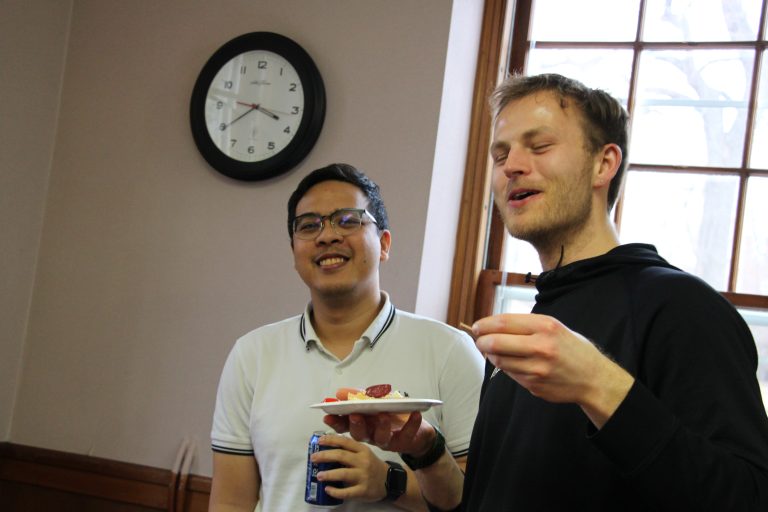

AAE & ABM, what’s the difference?
The way I understand the difference between AAE and ABM is that AAE is a broader degree that can have a focus on several different things: environmental economics, international development, and community economics to name a few. While ABM focuses more on the business side of the agriculture industry primarily in developed contexts such as the United States.
Brayden Paur
Agricultural and Applied Economics B.S. ’19
Data Analyst & Reporting Specialist, Water Mission
Impact of AAE
The [AAE] department’s philosophy of exploring “economics for the real world” aligned closely with my personal ideology, and I hoped to expand my understanding of how economic and statistical modeling can be incorporated across many different academic and professional disciplines. I’ve learned so much from my coursework and independent research, and I’m excited to continue this journey next year as a Master’s student here.
Griffin Beronio
Agricultural & Applied Economics B.S. ’25
Pursing a Master’s of Science in Agricultural Economics—Professional Option (MSPO)
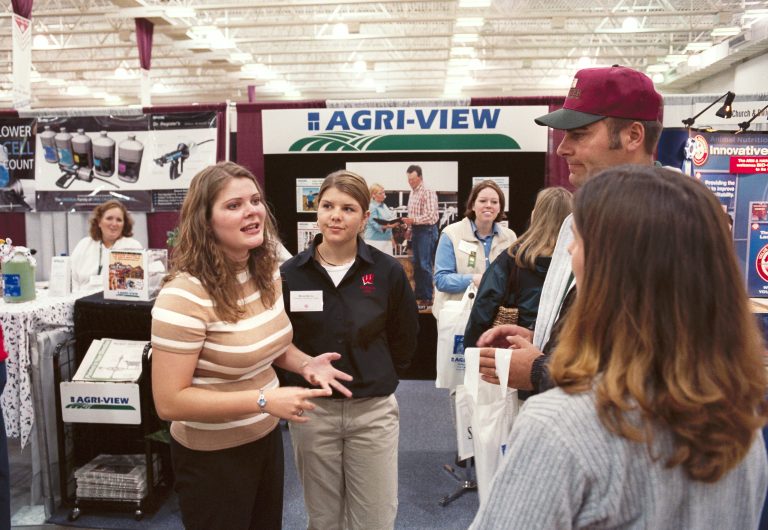
Alumni Inspiration

Brayden Paur
AAE B.S. ’19, Certificate in Developmental Economics
Data Analyst and Reporting Specialist, Water Mission

Maiah O’Rourke
AAE, Journalism, and International Studies B.S. ’24,
Certificate in Environmental Studies
Development Analyst, TED Renewables

Cole Hicken
AAE B.S. ’24, Certificates in Science Communications and Environmental Studies
Assistant Loan Manager, Alcivia
Find Your Community & Customize Your Pathway
Clubs and Student Organizations
Find a community that suits you best for personal, academic, or professional interests or development. There's a place for all interests from sports and recreation, nature, to arts, or AAE topics in econ, policy, environment, business, & agriculture!

Experiential Learning and Career Preparation
AAE 267, a career development seminar prepares students to network and explore internships +careers with an updated resume. The capstone class, AAE 500, partners with companies and organizations for consulting projects on real-world scenarios.
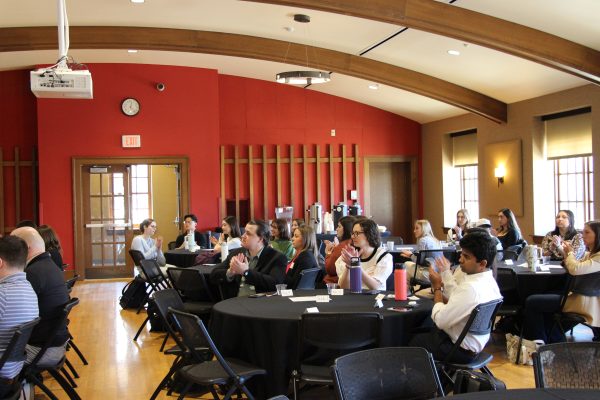
AAE Trading Club
AAE 250, a one credit course available in the spring with Prof. Sheldon Du is a space for students interested in trading and commodity futures. Gain technical trading skills to participate in the Chicago Mercantile Exchange trading competition.
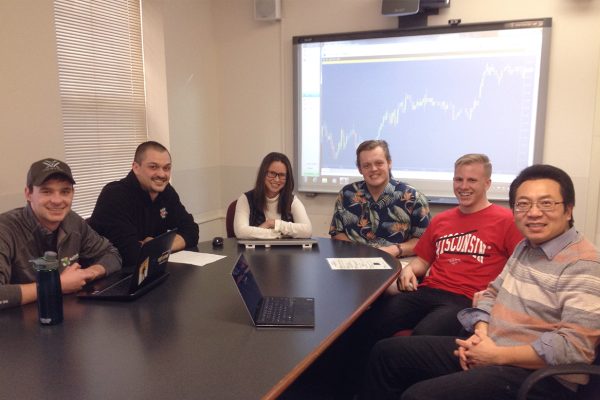
Beyond the AAE Curriculum
Students are highly encouraged to customize their own unique experiences through study abroad, research, double majors, or certificates (minors). Need-based and merit-based scholarships are available to afford and expand opportunities to succeed.
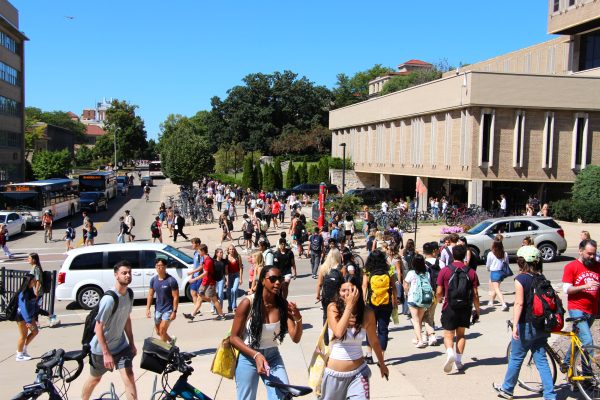
AAE in practice

Ellie Capra: On the Fast Track
AAE Graduate, Ellie Capra, represents talks about the life from rural living to our MSPO classrooms and her journey as a transfer student.
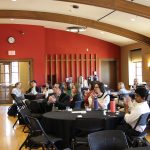
From Concept to Crunch
Each semester the College of Agricultural and Life Sciences (CALS) hosts a Case Competition in partnership with a company or organization, sponsored by the Renk Agribusiness Institute. This spring 25 students across 12 CALS undergraduate …
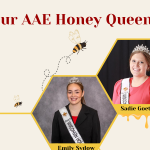
The Bee-uty of AAE
AAE's very own Sadie Goettl and Emily Sydow have taken reign as representatives of the Wisconsin agriculture industry the past two years as the Wisconsin Honey Queens.
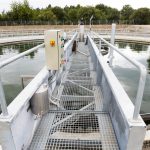
The value of water quality regulation in small-town America
Rhiannon Jerch studied how federal requirements to reduce surface water pollution affected city budgets, water quality and population growth.

Lending practices of banks and credit unions before and during the Great Recession
Jordan van Rijn studied how loan decisions affected the performance of two types of financial institutions during an economic crisis.
- More Alumni posts
- More Faculty posts
- More Student posts
